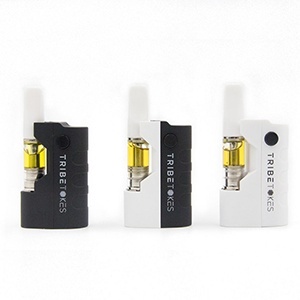
It’s not that Sony wants to give you the money. It’s that they simply can’t afford not to.
Once upon a time, Sony Music Entertainment charged their artists a fee for every CD sold. Why? Because Sony, along with Phillips, co-developed the CD back in the early 80s, thereby making them the patent owners.  So you — the artist, sub-label, whatever — had to help them recoup all of that R&D cost.
Actually, they still might be doing this. It’s just a lot harder to get the financial guys to talk these days. You know, the ones that are actually paid to obfuscate all those tricky numbers so that the less-informed artist gets less. But go check your statement (or better yet — share it with us at news@digitalmusicnews.com).
But not to pick on that one line-item. Or Sony in particular. The major labels have always found a way to get the better half of the deal. Sure, they made you famous — but fame comes with a cost. Paid in nickels and dimes. Wasn’t it Warner Music Group that was found charging artists a ‘breakage fee’ on digital until recently?
And remember the huge settlement with P2P file-sharing app Kazaa? That’s right: not one artist, manager, or even indie sub-label got a check after that one. But hey, piracy was dead, right?
And the same goes for all those juicy advances that major labels demanded from Spotify — every two years.
We’re talking millions and millions of dollars, flowing into the Big Three’s respective bank accounts. Not to mention prime advertising placements and other juicy perks. All negotiated with the leverage of impressive artist catalogs.
Here, go check out one of Sony’s contracts with Spotify.
So, why is Sony suddenly giving lip service to paying its artists a piece of the Spotify IPO?  After all, there’s nothing in any contract with any artist — at least that I’ve seen — that states, ‘Sony Music shall pay X% of a streaming service IPO’?
Well, there’s a simple reason. Sony — and the other majors — can’t afford to be straight-up assholes anymore.
There are simply too many other alternatives and pathways to success. Like Kobalt, which is finding more royalties and paying its clients faster than any big label. And that’s just one example. Because the reality is that every single artist, DJ, producer, or songwriter with any level of traction has options in 2018. There’s always another way to succeed that doesn’t involve a big label (or label-owned publisher).
That’s not to say that a major label won’t catapult a career. Or secure a juicy slot on a plum playlist while arranging the right collaborations and producer relationships. They can do all of that, but as long as Chance the Rapper, Boyce Avenue, or even Amanda Palmer exist, there are options in the mind of every artist with talent and — yes — market potential for those artists.
Maybe even Spotify will start signing artists again (anybody remember Cazzette?) And, actually start developing them. After all, that’s what Wall Street really wants, right? The ‘Netflix of Music’?
And the stock price goes boom!
But even beyond that, the bigger revenue streams are flowing into live and tech — not recorded music labels. Once upon a time, the major label was the hub and all the spokes. Even Lady Gaga — whose career started just as the major label kingdom was weakening — barely survived getting dropped by Island Def Jam.
That’s right: getting dropped by a major used to spell the death of a career — forever. Nobody else wanted to take a risk after that!
Amazingly, getting dropped is now just the beginning for some artists. Not only Gaga, but Amanda Palmer and a long list of other major label drop-outs.
Back in the day, everyone wondered if the major labels were dead. Of course, they’re still very much alive. But despite all their modern-day muscle, it’s nothing compared to the power they once wielded.
Which means they have to be nicer to you.
P.S.: And if you think that those sketchy label royalty statements have a chance of flying even a year from now… well, you should read about a new fraud detection technology that was just demo’d to Digital Music News. Let’s just say, it’s gonna change music industry accounting in a HUGE way.  But more on that later.
Source: Digital Music News








